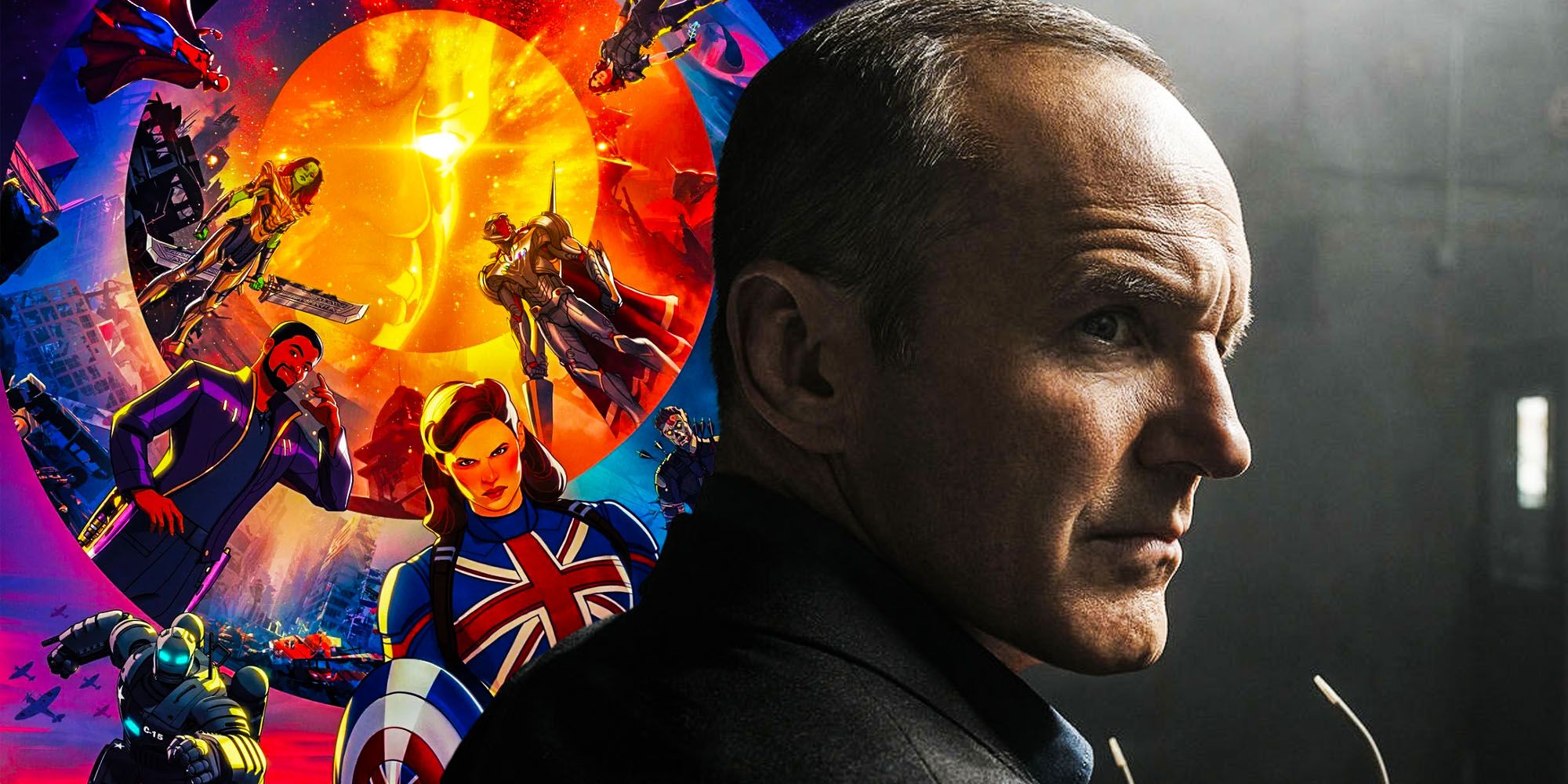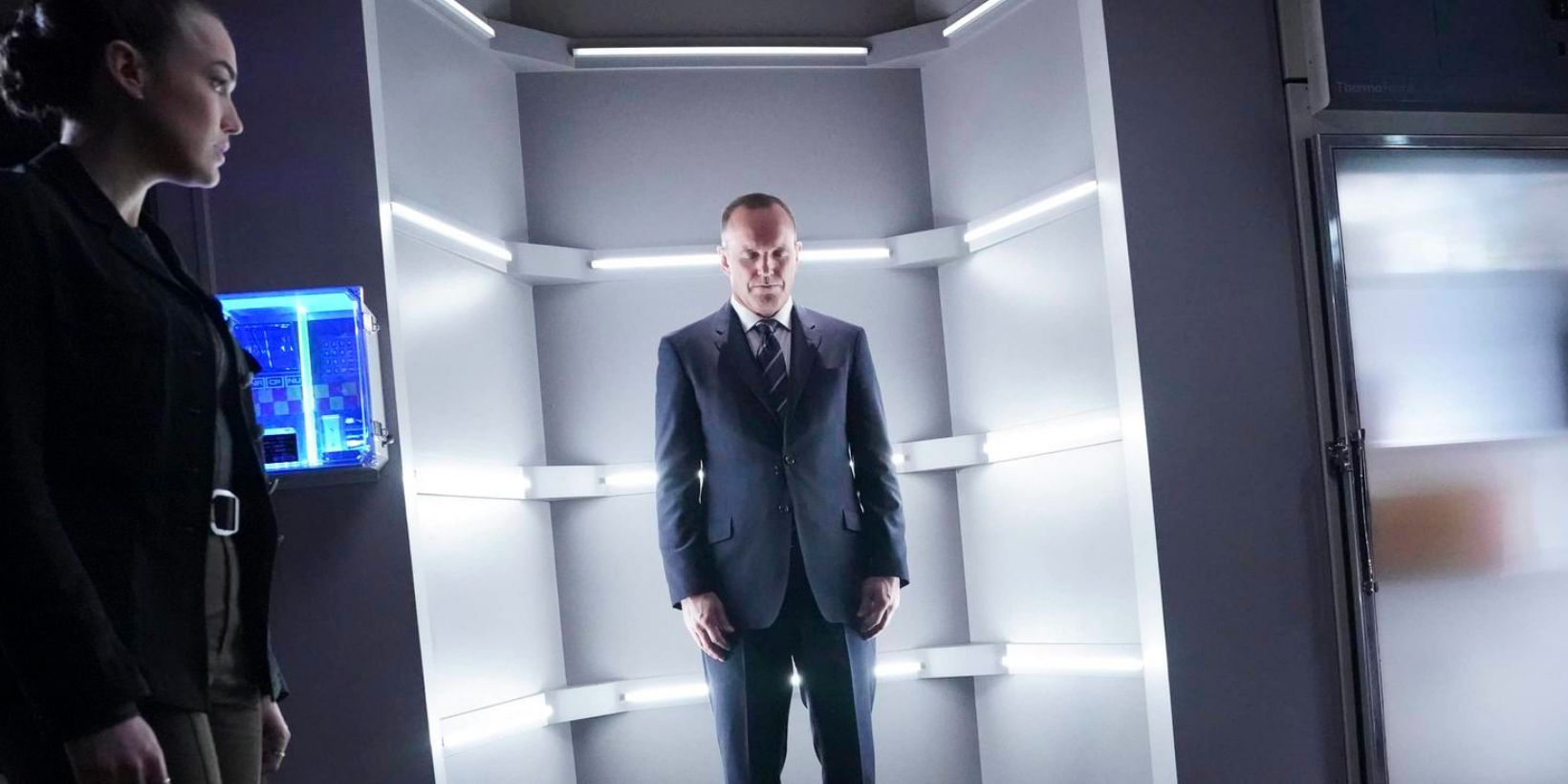
The Marvel Cinematic Universe already did its newest Phase Four trick with Agents of S.H.I.E.L.D., with far bigger stakes than What If...? The highly anticipated animated series was released to Disney+ and the first episode offered a look at an alternate universe where it was Peggy Carter, and not Steve Rogers, who became Captain America (though she is called Captain Carter in an official capacity). This was just a taste of what was in store, with each episode taking a look at alternate realities where one change resulted in different journeys for the characters fans know and love.
However, Agents of S.H.I.E.L.D. adapted What If… and arguably did it a lot better than the new animated series. Although the ABC series is not really considered a part of the MCU’s primary canon anymore, Agents of S.H.I.E.L.D. hit its stride in season 4, tackling a story that saw the characters in a simulated world called the Framework. Run by Hydra, this world saw Agent Coulson as a teacher, Agent Melinda May as an agent of Hydra, and Daisy Johnson (aka, Quake) married to Grant Ward, a former SHIELD agent who was revealed as a traitor in season 1.
Agents of S.H.I.E.L.D. showed its audience a scenario that put each of its characters in a wholly different situation than their real-world counterparts, with only Daisy and Jemma Simmons remembering their lives outside of the Framework. They had to tread softly because, if caught, they risked their lives and that of their team’s. What Agents of S.H.I.E.L.D. did so seamlessly with its take on What If…, which takes its name from the Marvel comic series that began in 1977, is establish danger and consequences for its characters. The Framework was a virtual reality simulation that showcased what the characters’ lives looked like had they chosen different paths, while also creating a sinister atmosphere that revealed just how easy it was to replace people with life-model decoys (LMDs) in the real world.

Whereas Agents of S.H.I.E.L.D. elevated the stakes, Marvel’s What If…? is designed to present different character scenarios with no stakes at all. What's more, it's largely beholden to MCU canon so it doesn't lean into these changes beyond presenting them to the audience as a teaser. In the case of Captain Carter’s episode, Peggy’s story mirrored Captain America’s story almost exactly. The differences were minor and the episode didn’t reveal any new information about either her or Steve. It only flipped the scenario and then proceeded to follow the same storyline fans were already familiar with. Agents of S.H.I.E.L.D.’s version of What If…? wasn’t a gimmick; rather, it was a crucial part of the show that developed the plot and the characters affected.
There were consequences to everyone’s actions, high-level risks in the attempted destruction of the simulation, and the storyline answered the question regarding what the world would indeed look like if Hydra took over completely to establish a new fascist world order. Seeing the Agents of S.H.I.E.L.D. characters in their new circumstances within the Framework was great, but there was ultimately a point to it all, an overarching plot that justified the changes being made. What If…? doesn’t really provide any of that and remains stagnant, geared more towards bringing a sense of familiarity than anything decidedly crucial to the MCU.
Comments
Post a Comment